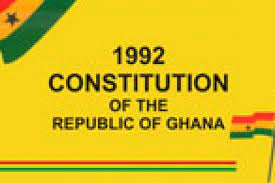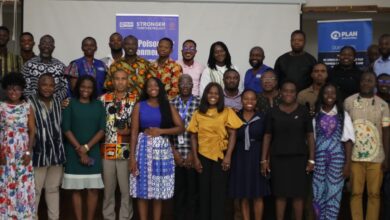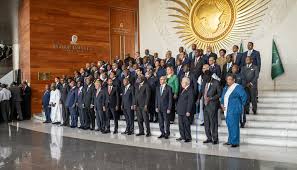The 1992 Constitution; a fit for purpose or an agent of Ghana’s economic woes?
The 1992 Constitution; a fit for purpose or an agent of Ghana’s economic woes?


The question that remains unanswered is how did we get here as a country? The role of the 1992 constitution to the economic position of our dear nation needs examination at this moment.
The birth of democracy began in America with glaring beauty. In such a system, societies easily develop.
The existence of freedom provides a means for people from poor backgrounds to rise and fight for a place among the privileged and the powers that be. This is admirable as compared to the then common practice of Aristocracy and feudalism where one is born into a permanent class of either a proletariat or bourgeoisie with no right to cross carpet. Alexis de Tocqueville, a French thinker and jurist observed in his works “Democracy in America” that if the trend in which democracy was practiced is not checked, it will soon breed a system worse than Aristocracy and Feudalism. Fair to say his prediction has come to pass, at least, in African countries such as Ghana. The driving force of every democracy is a functional constitution.
A constitution in the abstract sense refers to a system of laws, custom and conventions which define the composition of powers of organs of state and regulate organs to one another. In the concrete sense, a constitution is a document in which the most important laws are authoritatively stated.
The more encompassing definition of a constitution is that given by Sir. Ivor Jennings. He views the constitution as the document which sets rules governing the composition, power, and methods of operations of the main institutions of government and the general principles defining the relationship between the state and the citizens.
It is a constitution that serves as a contractual document between the citizens and those in authority, where the former surrender their rights and power to the latter to administer in a fair and just manner. A constitution may be written or unwritten, Federal and Unitary, monarchical and republican, and flexible or rigid.
The geo-political framework of Ghana is incomplete without its historical constitutional development which began in 1900 after the defeat of the Ashanti kingdom which brought them under British rule. The 1916 Clifford constitution then came into force but was short-lived due to its dissatisfactory content.
Sir, Gordon Guggisberg, the then governor of the Gold Coast came up with the Guggisberg constitution of 1925, subsequently replaced with the 1946 Burns constitution, the 1951 constitution, and finally the 1954 constitution, popularly known as the Nkrumah constitution that sought to prepare the then Gold Coast for independence.
The constitutional development process of post-independence has been one of a checkered history. The first independence constitution, 1957 came into force and vested more power in the executive organ of government. This was subsequently replaced by the 1960 first republican constitution.
Then came the 1969 and 1979 constitutions before a long period of military rule in which mostly Degrees were used to govern. The current living constitution document of the country is the 1992 constitution: the oldest of all constitutions in Ghana with 31 years in service.
The 1992 constitution came into force after a prolonged period of military takeovers. The longest-serving military government, the PNDC led by H.E Jerry John Rawlings. Rawlings upon several calls on him to return the country to civilian rule, set up a committee of experts led by Dr. S.K.B Asante to gather the views of the people to form a new constitution.
The people of Ghana through a referendum on 28th April 1992 adopted the constitution which came into force on 7th January 1993. The 1992 constitution embodies the aspirations, wishes, and spirit of the people of Ghana as Sowah JSC posited in Tuffuor V Attorney General(1980)GLR. This is noticeable in the preamble to the constitution which reads “We the people, IN EXERCISE of our natural and inalienable right to establish a framework of government which shall secure for ourselves and posterity the blessings of liberty quality of opportunity and prosperity—“.
The 1992 constitution clearly sets out constitutional supremacy in lieu of articles 1(2) and 2(1). It further provides powers to the Supreme Court under Article 130 to ensure the sanctity of the Constitution over everything in the realm. The organs of government are set out by the constitution with obligations and powers conferred on them to exercise within the bounds of the constitution; Dr. Date Bah JSC (as he then was) in delivering the unanimous decision of the court in Adofo & Annor V Attorney General (2005-2006)SCGLR 42, held: This constitutional provisions unequivocally and authoritatively establish the supremacy of the constitution within the jurisdiction of Ghana. In the case of New Patriotic Party V Attorney General (31st December Case) (1993-94)2GLR 35, His Lordship Aikins JSC (as he then was) further advanced this point when he posited that the 1992 constitution limits the right of parliament to legislate such that to enact a law that June 4 and December 31st be observed as public holidays cannot be allowed to linger in the realm of public policy.
A constitution is indeed a living document capable of growth as Sowah JSC rightly posited in Tuffuor V Attorney General(1980)GLR 637-667. The recent public outcry that the constitution created an over-powerful executive barely accountable to no one in substance and that power does not actually belong to the people, need not be glossed over. Despite the provision of Chapter 25 under articles 289, 290, 291, and 292 that provide an opportunity to amend the constitution, it has rarely been used. An attempt was made when H.E. Prof. John Evans Atta Mills set up a Constitutional Review Commission under C.I 64 to look into the constitution and suggest possible areas for review taking into consideration the views of the people.
There are areas in the constitution that need urgent review.
The president’s power of appointment under Article 70 appears too wide, which compromises the independence of critical institutions of the state. The president is vested with the power to appoint the Commissioner for Human Rights and Administrative Justice, the Electoral Commission Chairperson and Deputy, the Auditor General, the Chairperson and members of the Salaries and Emolument Commission, the Chairperson and other members of the National Commission for Civic Education amongst others.
These institutions are to perform independent roles to put the government in check. It remains a wonder how a servant can call his master to order—perhaps, the reason why almost all corrupt practices go unpunished. This breeds impunity and massive raping of the public purse by a government in power. The overall effect is that the economy is run aground and the innocent citizens suffer.
The president is exempted from paying tax by virtue of Article 68(5). The long-held cliché that leadership must live by example is thrown to the dogs by this provision. The first gentleman of the state with uncountable benefits, salary, and emoluments does not pay tax and yet complains about low tax revenue. The developed countries levy taxes on all citizens including the president. Ghana should not be an exception.
The payment of huge ex gratia to Article 71 office holders should be a concern to all. The economy is not strong enough to continue to pay out huge sums of money to the numerous appointees under Article 71. As a result, people run for office not because of the motivation to serve but rather the monetary reward after four years. One wonders who brought this type of thinking into our constitution if not to say that the constitution is designed to favour the political class.
The appointment of the majority of ministers from parliament by virtue of Article 78 is also problematic. This defeats the concept of separation of powers in a proper democracy as it compromises the work of parliament to keep acts of the executive in check.
The judiciary is under the control of the executive by its power of appointment of the Chief Justice under Article 144 and other justices. The judicial council should have a more effective role rather than the executive taking charge of the appointment with limited input from the judicial council.
In fact, Article 128 is open as to the maximum number of justices to be appointed to the Supreme Court. This may be exploited by a president and a high number of justices appointed to the Supreme Court which is detrimental to the state.
The 1992 constitution is ripe for an amendment to serve the needs of the time. It is recommended that the constitution be thoroughly reviewed. I present some suggestions in the proceeding paragraphs.
First, a National Independent Emoluments Commission should be established to determine the salaries and allowances of all persons in the country including the president and his appointees to ensure equality. The payment of ex gratia should be cancelled to save the country from the extra debt burden.
Second, the president should be made to pay taxes as a citizen. There is no point in exempting the father of the state from paying taxes even when he is more capable of paying than anyone else.
Third, the country should amend the constitution to include the National Development Planning Commission and how it can be funded. This will avoid the waste of resources in putting up uncompleted buildings or projects which are not continued by subsequent governments. This planning commission should replace the Council of State which appears to be less functional despite lots of money being spent on their salaries and other emoluments. The decisions of the National Planning Commission should be binding on the president to implement.
Further, the U.S. Constitution grants Congress the power to determine how many justices sit on SCOTUS. This number has ranged between 5 and 10, but since 1869 the number has been set at 9. This reduces the influence of politics on the judiciary. Similarly, Ghana must take a look at Article 144 of the 1992 constitution and address this challenge by providing a cap on the number of supreme court judges, while limiting the powers of the executive in this regard.
Also, article 78 must also be amended to ensure complete separation of powers as practised in the United States. Ministers of state must not be appointed by parliament. This would ensure a proper check on the powers of the executive by the legislature.
Democracy is as good as the constitutional document that regulates the affairs of the state. In a country like Ghana, if power is not properly distributed, it creates avenues for corruption; which deprives citizens of their fair share of the abundance of resources. The sad end is that at a point, everyone will bear the pain of bad governance when the economy can no longer sustain the massive abuse of public offices. If a change must come, the 1992 constitution needs to be reviewed. It must, however, be admitted that the call for a complete overhaul of the 1992 constitution appears to be far-fetched.
By Atanga Mathew, LLB, KNUST





